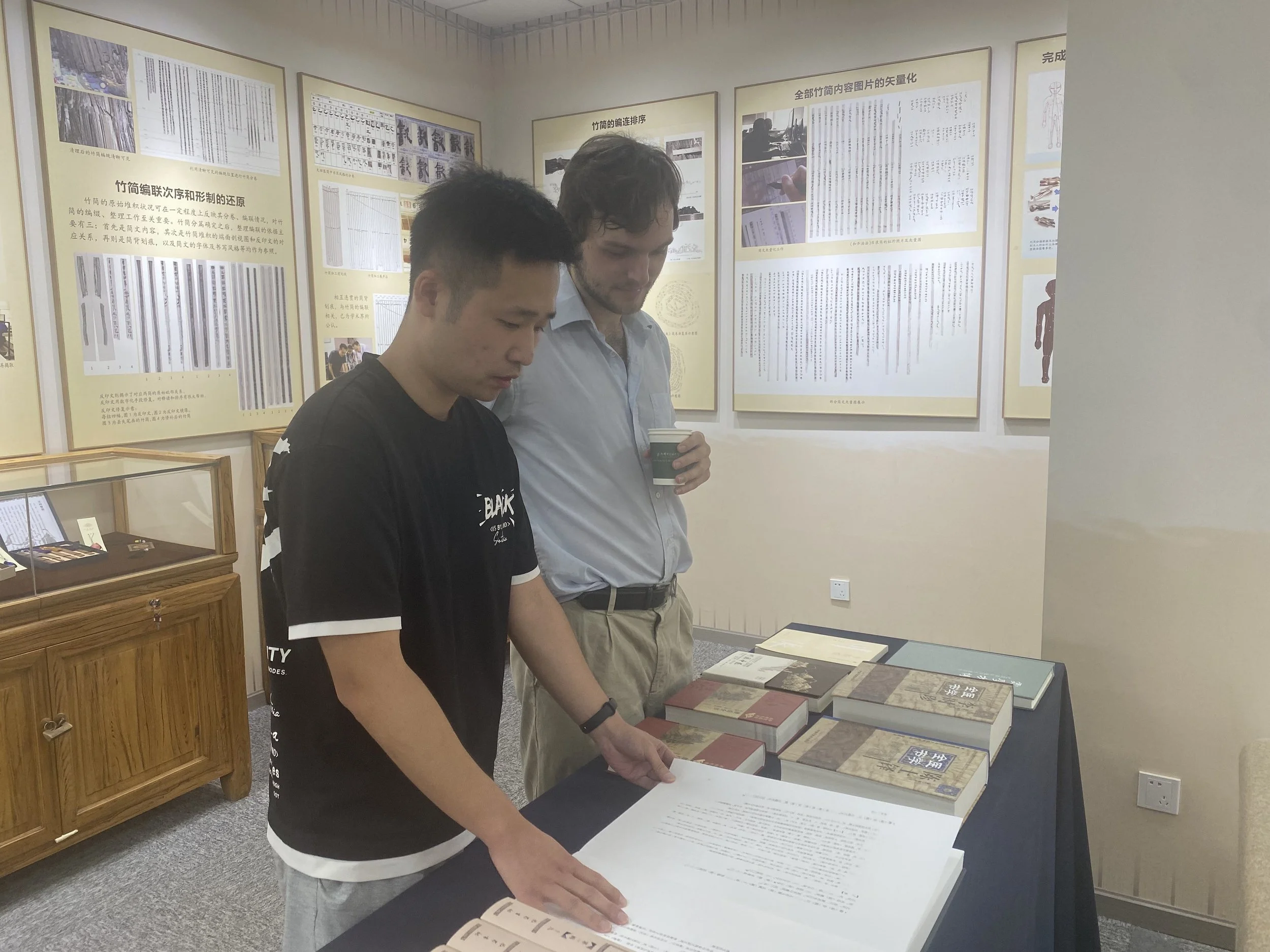This is the monthly live event, on the second Friday or Saturday of each month, as part of my Imperial Tutor mentorship. I either present a more formal lecture myself, followed by a lively discussion (what used to be called “History Train Lectures”), or I invite an important voice or two in Chinese medicine (practitioner of the East Asian healing arts, philosopher, anthropologist, historian, translator, author etc.) for a casual chat. While this is a members-only event, the general public can always join for a 9-day $9 trial to check it out.
For this month’s Tea Time Talk, I meet up on Zoom with Arthur Harris, PhD. It is thanks to Prof. Elisabeth Hsu that I was connected with Dr. Harris, with the result that he is now also an honorary member and regular participant in our Peach Blossom Spring Translators Collective. This Tea Time Talk is a great opportunity for all of us to get to know a little more about his fascinating research and the questions and answers that occupy his mind.
We will be discussing his research on early Chinese medicine from the Warring States to the Western Han, in comparison with ancient Greek medicine. In particular, he is interested in these three topics (in his words):
How is the aim of medicine defined? To generalise, Chinese culture valued longevity more than Greek culture, and that's reflected in how doctors talk about their ideals.
What is the status of medical knowledge as a techne or shu 術, especially in light of the fact that even the best practitioners sometimes fail to heal patients?
We could also talk about the social background: competition between healers, medical education, and relations with diviners and philosophers.
Here is how Dr. Harris described his background to me: “Comparative ancient medicine has been my focus for the past two years or so, but I was originally trained in Classics and then in the History and Philosophy of Science. While writing my PhD (2021) on the pseudo-Aristotelian Mechanica, I was studying Chinese language and I published a paper on "new diseases" in Greco-Roman medicine. Hopefully by early December I'll have turned in my book manuscript, Aristotle and the Peripatetic Mechanica, but I don't think we should spend much time on that in our teatime chat!
In addition, Dr. Harris suggested discussing ancient languages and language learning and teaching, and he wants to learn more about the conversations that TCM practitioners are currently having about the history of Chinese medicine. As you see, we will definitely not be running out of things to talk about. Mark your calendar, bring your questions, and join us on December 9!
